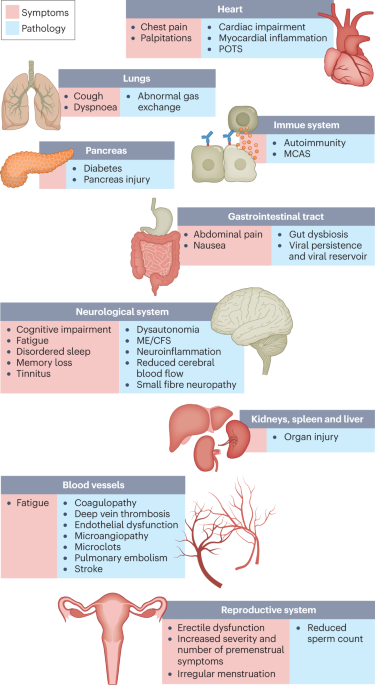Shifty, no offense but you are going really unscientific here.
No, I'm not. If 5% of the population has Long Covid, one in twenty has it. That'll be reflected in the everyman knowing people who have it. It's basic stats. If I hand you a sack of snooker balls and tell you that 5% are estimated to be red, and you start pulling out balls and they are all white, one after the other, for 50, 60, 70 balls, you're going to start to question my estimation. If there isn't an obvious ~5% present in the everyman, then the estimates have to be wrong. The only way that can't be true is if there's a huge skew to the populations with LC, such as the North of England have 3x the rate as the South and so my local populace doesn't show it. Or it's among all Black and Asian populations and not my mostly Caucasian contacts. But there's no such delimitation that I know of.
That's an incredibly bizarre argument, Shifty. You're arguing that the people I have contact with through work aren't a representative sample. Only close family and friends should count for some unspecified reason? Just odd.
I'm saying it'll be 5% of
everyone, which should include 5% of the people you encounter at work,
and 5% of your friends, family, and acquaintances that you meet in everyday life. It'll be 5% of the populace on this forum. So if it's one in 20, as well as the people you encounter through work, one in 20 of your friends+family+acquaintances should also have LC, no?
The presence of people with LC through your line of work shows LC exists, but doesn't quantify it. We can quantify it by getting a proportion of those with LC out of the whole population. We can sample an arbitrary group of the population, our own immediate contacts, which will show if LC is very prevalent or not because approximately the (inter)national average for LC will be present in the sample. There's a lot of margin for error on the specific details, whether it's 10% or 2%, but 5% is such a large target that statistically it should be present among our contacts (unless, as mentioned earlier, it's confined to subsets of the population).
Also, that's the low estimate! The estimate you gave went as high as 10%. There's no way you can have 10% of the population have LC and yet have people like me not even know one person among 100! You'd have to be counting something as LC that people themselves aren't considering LC, so in the UK self reporting (
here) that has <2% for the under 35s, and 4% for the overs, there's an additional 5% of the population with LC not reporting it.
Furthermore, fromthe UK self-reporting estimates, LC is higher among the older age-groups which are the more vaccinated ones, which doesn't fit with the view that the unvaccinated at 3x more likely to develop LC.
I'll leave you with your own quote:
"
Out of 100 people you see, 95 or 96 people are going to be just fine. But you could be one of those unlucky four, and I personally don’t want to take my chances," Al-Aly said.
A reference to random public sampling, and 4%, not 10!
In short, I think the prevalance of LC is being overstated in the content you linked to.


